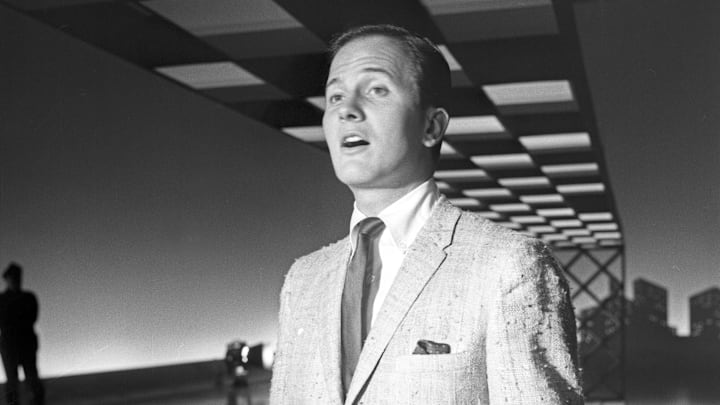6. “THERE! I’VE SAID IT AGAIN” – Bobby Vinton (1964)
Bobby Vinton had a bunch of hits in the early ‘60s. Several made it to number one. That’s a lot of success for a good-looking, dull-voiced heartthrob. That voice was perfectly nice and unthreatening, and when he latched onto a good song, the results were just fine. That’s what happened with “Blue Velvet” and “Mr. Lonely.” His first number one – “Roses Are Red (My Love)” – is a little stodgier.
But it doesn’t come close to the old-fashioned schmaltz of “There! I’ve Said it Again.” The melody drags the listener off to dreamland, and the heavenly choir of backing vocals does nothing to wake you up. It’s as if that exclamation point after “There” in the title is mocking us.
Here's the thing. Sam Cooke recorded this song several years before Vinton. Though it came first, the production is far more modern, not weighted down by strings and choirs. Most importantly, Cooke’s vocals are so much more immediate and contemporary. His phrasing – taking a cue from Sinatra - is more conversational and more expressive. The song may not be among the best, but in Cooke’s voice, it sounds like a real song. When Vinton sings it, it’s a collection of grandiose and dull pop cliches.
5. “HONEY” – Bobby Goldsboro (1968)
You know, sometimes I think I should write dictionaries. It takes Oxford seven words to define mawkish: “sentimental in a feeble or sickly way.” I could do it in less than half that: “Bobby Goldsboro’s “Honey.” This gentle little nursery rhyme of a melody drags on for four full minutes.
The singer is recalling a young woman – sometimes I think it’s his daughter, but then I remember it’s really his wife. The point is, she’s infantilized – “kind of dumb and kind of smart.” He surprises her “with a puppy” at one point. Oh, yeah, and she cries a lot, over pretty much anything.
Three-quarters of the way into the memory, we find out she’s dead (or that “the angels came” which is Goldsboro’s way of saying dead). He misses her and he’s being good, and I suppose we should all feel a little tear. I’ve teared up over plenty of other sad songs, many of which lean heavily to the sappy side of the tree. But I find it hard to cry over this one. That’s because it’s mawkish. You have your definition.
